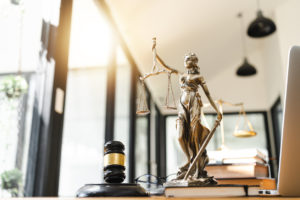Liability

Georgia tort laws allow injured parties to seek compensation for their damages. However, the injured party has the burden of proving liability. Proving liability creates a legal responsibility for damages and injuries caused by negligence, intentional acts, or other wrongdoing.
Most personal injury cases in Georgia are based on general negligence claims. However, some injury claims are based on other tort claims, including vicarious or strict liability. Personal injury claims may also be based on intentional acts.
Liability for General Negligence Claims
Negligence occurs when a person fails to use reasonable care. Reasonableness is based on what a person with ordinary prudence would use in a similar situation, also referred to as the “reasonable” person standard.
Proving liability for a negligence claim requires evidence establishing:
- Duty of Care – The party who caused your injury owed you a legal duty of care.
- Breach of Duty – The party’s conduct breached their duty of care.
- Causation – The party’s conduct was a direct and proximate cause of your injury.
- Damages – You sustained damage because of the party’s breach of duty.
Examples of personal injury cases typically based on general negligence claims include automobile accidents, slip and fall accidents, motorcycle crashes, medical malpractice, and premises liability.
Strict Liability
In a strict liability case, the party can be liable for damages regardless of their intent or negligence. For example, a person is strictly liable for abnormally dangerous activities, even though the person took reasonable care to avoid an injury.
The law views these activities as so inherently dangerous that the person is liable whenever the activity causes an injury.
Some product liability cases are based on strict liability. The manufacturer or other party is liable for creating a defective product, even though the party did not intend to injure someone.
If the injured party proves the product is defective and the defect led to their injury, it should be sufficient to establish liability for damages.
In some states, dog owners are held strictly liable for dog bites. Georgia holds dog owners strictly liable for damages in some cases, but not all cases. You must prove that the dog was dangerous or “vicious,” the dog was at large, and you did not provoke or intentionally cause the dog to bite you.
Intentional Torts
An intentional tort involves committing an act with the intent of causing harm or injury to another person. Examples of intentional torts include:
- Sexual assault
- Fraud
- Battery or assault
- Gunshots
- Stabbings
Intentional tort claims can arise from criminal cases, but the person does not need to be arrested or found guilty to be liable in a civil case. However, some of the same evidence used to prove the criminal case could be used in a civil case to prove liability.
Vicarious Liability
In most cases, only the party who caused the injury is held liable for damages. However, vicarious liability can hold a party liable for the damages caused by another party. Vicarious liability applies in cases involving an employer-employee relationship.
For example, a trucking company is held liable for a truck accident caused by its truck driver. Another example could be a restaurant held liable for an injury caused by one of its employees.
To hold a party vicariously liable, the party must have had a supervisory role over the party who caused the injury.
What Damages Can I Receive for a Personal Injury Claim?
When you prove that a party is liable for damages, you can seek compensation for your losses, injuries, and other damages. Compensatory damages typically fall into two categories.
Economic damages include financial losses and expenses related to the accident, injury, and recovery. Examples of economic damages include:
- The cost of medical treatment and care, including nursing care, physical therapy, counseling, and rehabilitation
- The loss of income, including benefits, salaries, bonuses, overtime, and wages
- Out-of-pocket expenses and losses
- Assistance with household chores and personal care
- Diminished earning potential
Victims of personal injuries and accidents can also receive compensation for non-economic damages. These damages include:
- Pain and suffering from physical injuries, mental anguish, and emotional distress and trauma
- Disfigurement and scarring
- Loss of quality of life and enjoyment of life
- Permanent disabilities and impairments
In rare cases, an injured party might receive punitive damages. These damages “punish” a defendant for specific types of behavior instead of compensating an injured party for their damages.
In Georgia, you must prove that the defendant acted with fraud, gross negligence, or intentional malice.
Our injury lawyers review each case to determine the damages available. We work to maximize recovery to help you as you continue to heal and recover from your injuries.
Schedule a Free Consultation With Our Tifton Personal Injury Lawyers
At The King Firm Car Accident and Personal Injury Lawyers, we are dedicated to helping you recover the compensation you deserve after a personal injury or accident.
Contact our law firm to schedule a free consultation with one of our experienced Tifton personal injury attorneys. Call us at (229) 386-1376 today.
